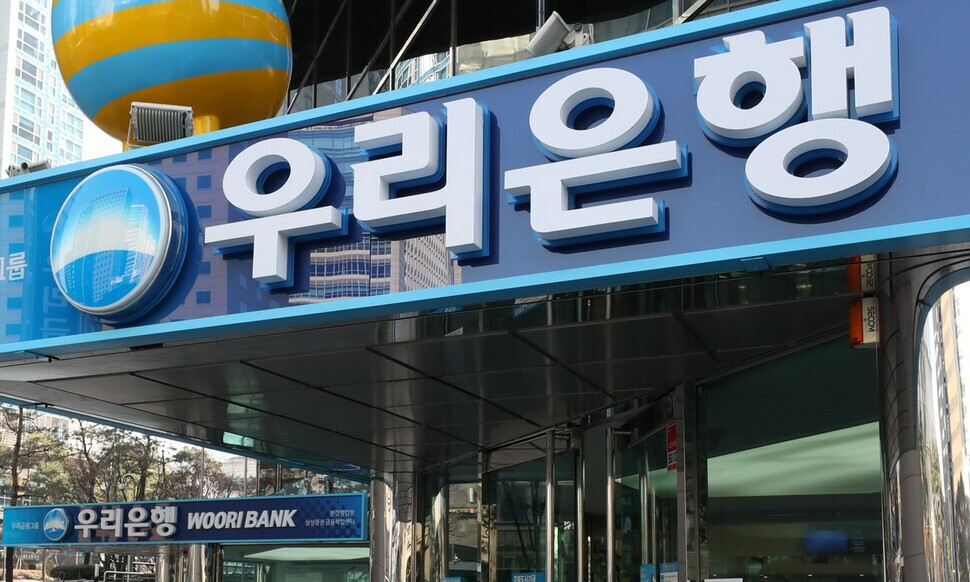
Seoul, South Korea – Woori Bank, a prominent South Korean financial institution, is making a strategic move to democratize access to financial services with the launch of its open Banking-as-a-Service (BaaS) platform. This initiative aims to empower a wide range of businesses, particularly startups and small and medium-sized enterprises (SMEs), by enabling them to seamlessly integrate Woori Bank's financial capabilities directly into their own applications and services. This development signals a significant shift in how financial institutions approach partnerships and market expansion, moving towards a more open and collaborative ecosystem.
Banking-as-a-Service represents a paradigm shift in the financial industry, allowing non-financial entities to offer financial products and services to their customers without the need to build complex and often costly infrastructure from scratch. By providing access to their APIs (Application Programming Interfaces), banks like Woori Bank are essentially allowing third-party developers to build upon their existing infrastructure, creating innovative and integrated user experiences.
Woori Bank's foray into open BaaS marks a departure from the traditional model of banks engaging in bespoke, one-on-one collaborations with larger non-financial corporations. The new approach aims to create a more level playing field, enabling smaller businesses and startups, which often lack the resources and established reputation to negotiate individual partnerships with major financial institutions, to leverage sophisticated financial tools.
The core of Woori Bank's initiative lies in its advanced Open API enhancement project. This project focuses on refining and exposing Woori Bank's core financial services – including payments, account management, lending, and more – through a set of well-documented and easily integrable APIs. This allows developers at third-party companies to embed these financial functionalities directly within their own applications, creating a smoother and more integrated user journey.
Consider a burgeoning e-commerce startup. Traditionally, to offer payment processing within its platform, the startup would need to navigate complex and time-consuming agreements with multiple entities, including payment gateways (PGs), credit card companies, and potentially even individual banks. This process can be a significant barrier to entry, particularly for resource-constrained startups. With Woori Bank's open BaaS platform, this startup could potentially integrate Woori Bank's payment APIs directly into its checkout process, offering a seamless and trusted payment experience to its customers without the burden of managing multiple complex relationships.
Similarly, a property management platform could integrate Woori Bank's account management APIs to facilitate rent collection and disbursement directly within its application. A logistics company could embed financing options powered by Woori Bank to offer its clients more flexible payment terms. The possibilities are vast and span across diverse industries, including retail, fintech, manufacturing, and real estate.
Park Yong-jin, Deputy Head of Woori Bank's New Business Partnership Platform Department, highlighted the strategic rationale behind this move, stating the bank's intention to "leverage the BaaS model that has been successfully implemented with large corporations to expand to small and medium-sized enterprises," enabling "broad collaborations." This suggests that Woori Bank sees open BaaS not just as a new revenue stream but as a way to foster innovation and expand its reach into previously underserved segments of the market.
The rise of BaaS is a global trend, driven by the increasing demand for embedded financial experiences and the growing capabilities of API technology. For startups, BaaS offers a significant advantage by reducing the time, cost, and complexity associated with integrating financial services. It allows them to focus on their core value proposition and enhance their offerings with seamless financial functionalities, ultimately improving customer experience and driving growth.
For traditional financial institutions like Woori Bank, BaaS presents both opportunities and challenges. The opportunity lies in tapping into new customer segments, generating new revenue streams through API access fees and transaction volumes, and fostering innovation by collaborating with a wider range of businesses. The challenge lies in ensuring the security and reliability of their open platforms, managing the increased complexity of their IT infrastructure, and navigating the evolving regulatory landscape surrounding open banking initiatives.
Woori Bank's move is likely to intensify competition within the South Korean financial sector as other banks recognize the potential of BaaS. Financial institutions that can offer robust, well-documented, and easy-to-integrate API platforms will be well-positioned to attract a growing ecosystem of third-party developers and businesses. This competition could ultimately lead to more innovative and customer-centric financial services being offered across various industries.
The success of Woori Bank's open BaaS initiative will depend on several factors, including the ease of integration for developers, the reliability and scalability of its platform, the clarity of its pricing model, and the robustness of its security measures. However, the bank's proactive approach to embracing open banking and empowering startups with seamless financial integration positions it as a key player in the evolving landscape of financial services. By lowering the barriers to entry for businesses seeking to offer financial functionalities, Woori Bank is not only supporting the growth of the startup ecosystem but also paving the way for a more interconnected and user-friendly financial future.
[Copyright (c) Global Economic Times. All Rights Reserved.]



























